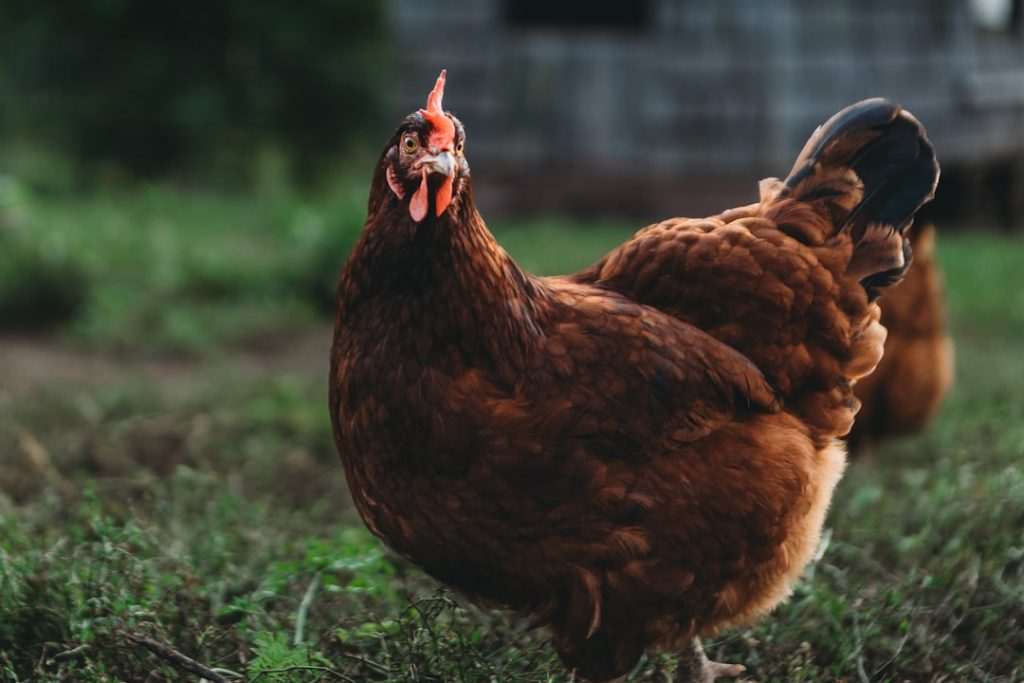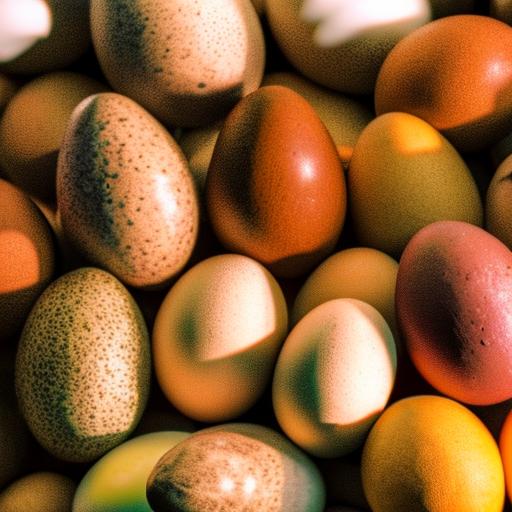Selecting the right breeding stock is crucial in the broiler chicken industry as it directly impacts the quality and productivity of the flock. The genetic makeup of the breeding stock determines the growth rate, feed efficiency, disease resistance, and overall performance of the broiler chickens. By choosing superior breeding stock, producers can ensure that their flocks will meet market demands for meat quality, quantity, and uniformity.
Additionally, selecting the right breeding stock can also lead to reduced production costs and improved profitability for the producer. Furthermore, selecting the right breeding stock is essential for maintaining genetic diversity within the broiler chicken population. Genetic diversity is important for the long-term sustainability of the industry as it allows for adaptation to changing environmental conditions and disease resistance.
By carefully selecting breeding stock, producers can contribute to the preservation of genetic diversity and ensure the continued success of the broiler chicken industry.
Table of Contents
- 1 Understanding Broiler Chicken Genetics
- 2 The Process of Selective Breeding
- 3 Factors to Consider in Broiler Chicken Breeding
- 4 Managing Breeding Programs for Broiler Chickens
- 5 Challenges and Solutions in Broiler Chicken Breeding
- 6 The Future of Broiler Chicken Breeding
- 7 FAQs
- 7.1 What is broiler chicken breeding?
- 7.2 What are the key considerations in broiler chicken breeding?
- 7.3 How is broiler chicken breeding different from other types of poultry breeding?
- 7.4 What are some common breeding methods used in broiler chicken breeding?
- 7.5 What are the challenges in broiler chicken breeding?
Key Takeaways
- Selecting the right breeding stock is crucial for the success of broiler chicken breeding programs
- Understanding broiler chicken genetics is essential for making informed breeding decisions
- The process of selective breeding involves carefully choosing and mating broiler chickens with desirable traits
- Factors to consider in broiler chicken breeding include health, growth rate, feed efficiency, and meat quality
- Managing breeding programs for broiler chickens requires careful record-keeping, monitoring, and evaluation of breeding stock
- Challenges in broiler chicken breeding include disease resistance, genetic diversity, and maintaining high productivity
- Solutions in broiler chicken breeding may involve advanced breeding techniques, genetic testing, and improved management practices
- The future of broiler chicken breeding may see advancements in genetic selection, breeding technology, and sustainable breeding practices
Understanding Broiler Chicken Genetics
Influencing Traits and Characteristics
Broiler chicken genetics play a critical role in determining the performance and characteristics of the birds. The genetics of broiler chickens influence traits such as growth rate, feed efficiency, meat quality, and disease resistance. These traits are controlled by a combination of genes that are inherited from the breeding stock.
Understanding Genetics for Effective Breeding
Understanding the genetics of broiler chickens is essential for selecting breeding stock with desirable traits and for implementing effective breeding programs. In addition, understanding broiler chicken genetics is important for managing genetic diversity within the population. Genetic diversity is crucial for maintaining a healthy and resilient population of broiler chickens.
Informing Breeding Decisions
By understanding the genetics of broiler chickens, producers can make informed decisions about breeding stock selection and breeding programs to ensure the long-term success of their flocks.
The Process of Selective Breeding

Selective breeding is a method used to improve the genetic makeup of broiler chickens by choosing individuals with desirable traits to be parents of the next generation. The process involves identifying and selecting breeding stock based on specific criteria such as growth rate, feed efficiency, meat quality, and disease resistance. By selectively breeding for these traits over multiple generations, producers can gradually improve the overall performance and characteristics of their flocks.
Furthermore, selective breeding involves careful record-keeping and data analysis to track the performance of individual birds and their offspring. This information is used to make informed decisions about which birds to select as breeding stock for future generations. The process of selective breeding requires patience and attention to detail, but it is essential for achieving long-term improvements in broiler chicken genetics.
Factors to Consider in Broiler Chicken Breeding
When it comes to broiler chicken breeding, there are several factors that producers must consider to ensure the success of their breeding programs. One important factor is genetic diversity, which is essential for maintaining a healthy and resilient population of broiler chickens. Producers must carefully manage genetic diversity by selecting breeding stock from diverse genetic backgrounds and avoiding inbreeding.
Another factor to consider in broiler chicken breeding is the selection of breeding stock with desirable traits such as growth rate, feed efficiency, meat quality, and disease resistance. Producers must carefully evaluate individual birds and their offspring to identify those with superior traits that can be passed on to future generations. Additionally, producers must consider the long-term goals of their breeding programs and make strategic decisions about which traits to prioritize in their selection process.
Managing Breeding Programs for Broiler Chickens
Managing breeding programs for broiler chickens requires careful planning and attention to detail. Producers must establish clear goals for their breeding programs, such as improving growth rate, feed efficiency, or meat quality, and develop a strategic plan for achieving these goals over multiple generations. This may involve selecting breeding stock with specific traits, implementing mating systems to maximize genetic diversity, and tracking the performance of individual birds and their offspring.
In addition, managing breeding programs for broiler chickens involves regular monitoring and evaluation to assess the progress of the program and make adjustments as needed. Producers must keep detailed records of breeding stock performance, pedigree information, and other relevant data to inform their decision-making process. By effectively managing breeding programs, producers can make continuous improvements in the genetic makeup of their flocks and ensure the long-term success of their operations.
Challenges and Solutions in Broiler Chicken Breeding

Overcoming Challenges in Broiler Chicken Breeding
Broiler chicken breeding comes with its own set of challenges, such as maintaining genetic diversity, managing inbreeding, and selecting breeding stock with desirable traits.
Implementing Strategies for Success
To address these challenges, producers can implement strategies such as using advanced genetic technologies to assess genetic diversity and make informed decisions about breeding stock selection. Additionally, producers can use mating systems such as crossbreeding to introduce new genetic material into their flocks and avoid inbreeding.
Balancing Multiple Traits
Another challenge in broiler chicken breeding is balancing multiple traits such as growth rate, feed efficiency, and meat quality. Producers can address this challenge by prioritizing traits based on market demands and developing breeding programs that focus on improving specific traits over time.
Achieving Long-term Success
By carefully managing these challenges, producers can overcome obstacles in broiler chicken breeding and achieve long-term success in their operations.
The Future of Broiler Chicken Breeding
The future of broiler chicken breeding holds great potential for advancements in genetics, technology, and management practices. With ongoing research and development in genetic technologies, producers can expect to have access to advanced tools for assessing genetic diversity, identifying desirable traits, and making informed decisions about breeding stock selection. Additionally, advancements in reproductive technologies may offer new opportunities for improving breeding programs and achieving greater efficiency in broiler chicken production.
Furthermore, the future of broiler chicken breeding may involve increased collaboration between producers, researchers, and industry stakeholders to share knowledge and best practices for genetic improvement. By working together, the industry can make significant strides in enhancing the genetic makeup of broiler chickens and meeting the evolving demands of consumers and markets. Overall, the future of broiler chicken breeding holds promise for continued innovation and improvement in the industry.
If you are interested in breeding broiler chickens, you may also want to consider the interior design of your chicken coop. This article provides some great ideas for creating a comfortable and efficient space for your chickens to thrive. A well-designed coop can contribute to the overall health and productivity of your broiler chickens.
FAQs
What is broiler chicken breeding?
Broiler chicken breeding is the process of selectively mating parent stock to produce offspring with desirable traits for meat production. This involves careful selection of breeding stock and genetic management to improve traits such as growth rate, feed efficiency, and meat quality.
What are the key considerations in broiler chicken breeding?
Key considerations in broiler chicken breeding include selecting parent stock with desirable traits, managing genetic diversity, and ensuring the health and welfare of the breeding birds. Additionally, factors such as feed efficiency, disease resistance, and environmental adaptability are important in the breeding process.
How is broiler chicken breeding different from other types of poultry breeding?
Broiler chicken breeding is specifically focused on producing birds for meat production, with an emphasis on rapid growth and efficient feed conversion. This sets it apart from other types of poultry breeding, such as egg production or exhibition purposes, which may prioritize different traits.
What are some common breeding methods used in broiler chicken breeding?
Common breeding methods used in broiler chicken breeding include artificial insemination, pedigree selection, and crossbreeding. These methods are employed to improve specific traits and maintain genetic diversity within the breeding population.
What are the challenges in broiler chicken breeding?
Challenges in broiler chicken breeding include managing genetic diversity, preventing inbreeding, and addressing health and welfare concerns in the breeding population. Additionally, balancing traits such as growth rate and feed efficiency while maintaining meat quality can be a challenge in the breeding process.
Meet Walter, the feathered-friend fanatic of Florida! Nestled in the sunshine state, Walter struts through life with his feathered companions, clucking his way to happiness. With a coop that’s fancier than a five-star hotel, he’s the Don Juan of the chicken world. When he’s not teaching his hens to do the cha-cha, you’ll find him in a heated debate with his prized rooster, Sir Clucks-a-Lot. Walter’s poultry passion is no yolk; he’s the sunny-side-up guy you never knew you needed in your flock of friends!







